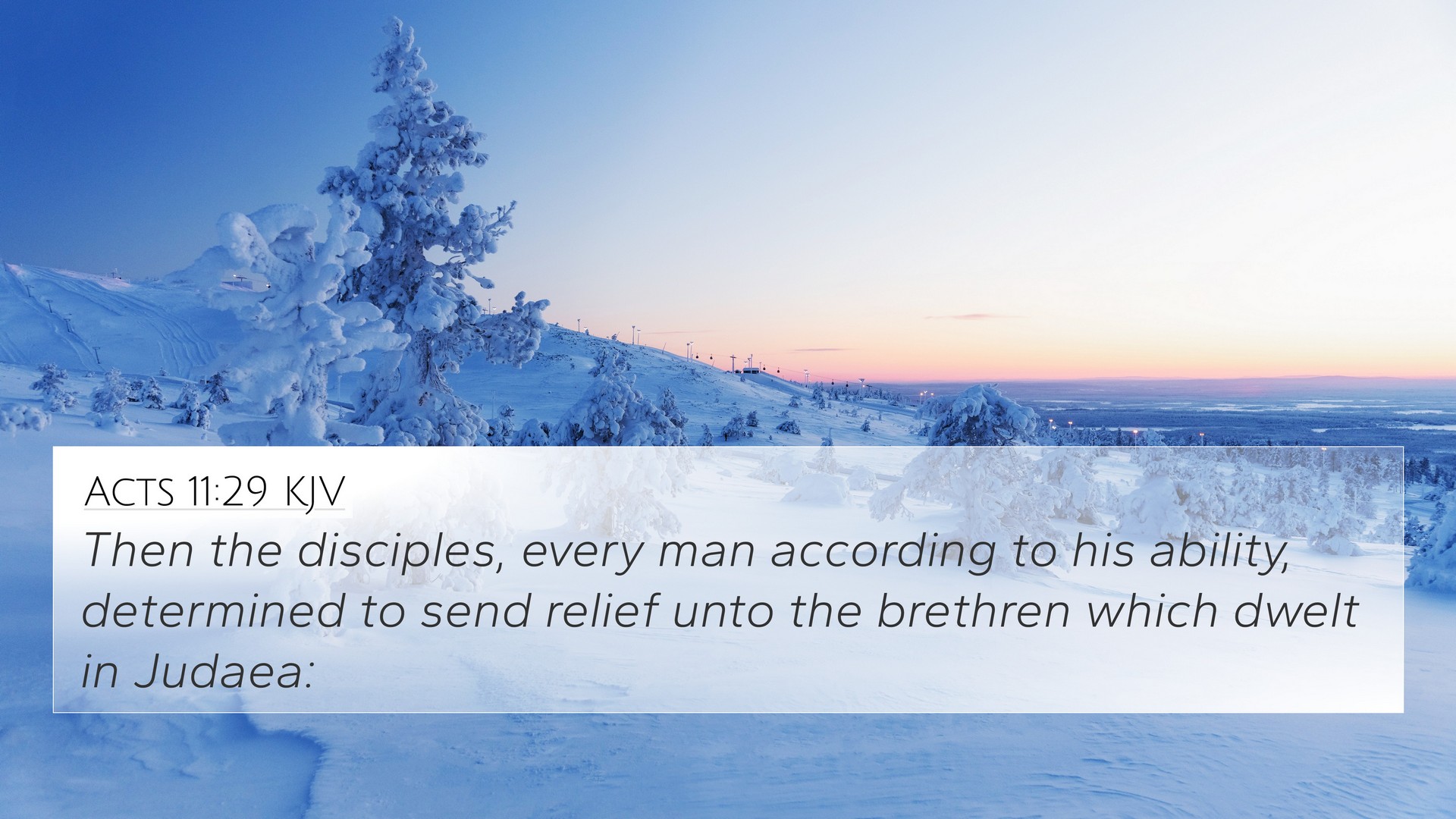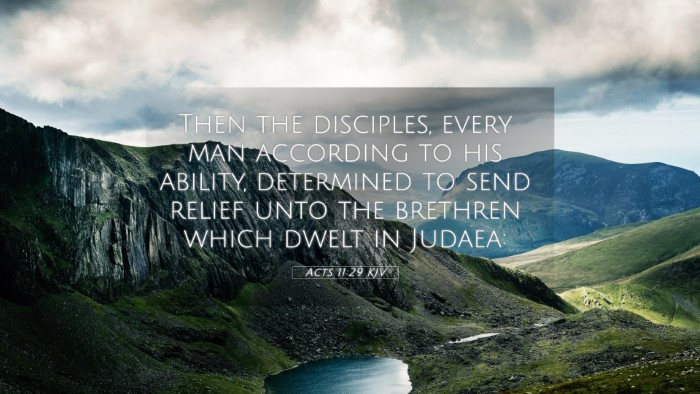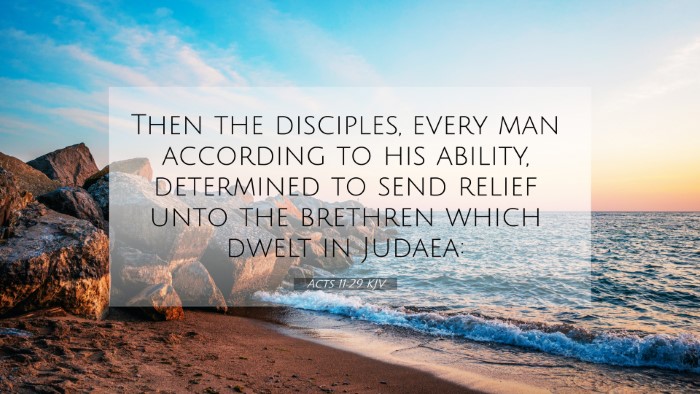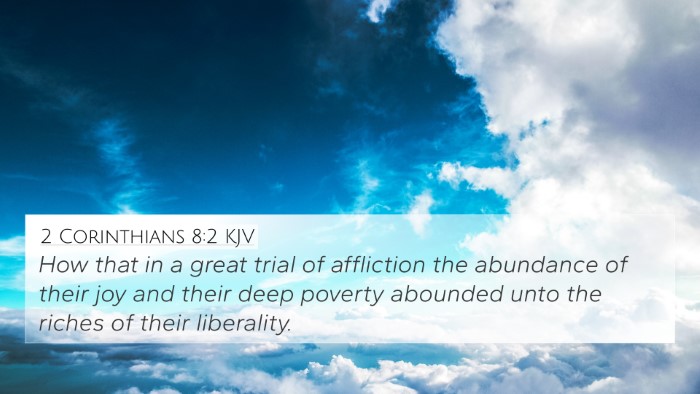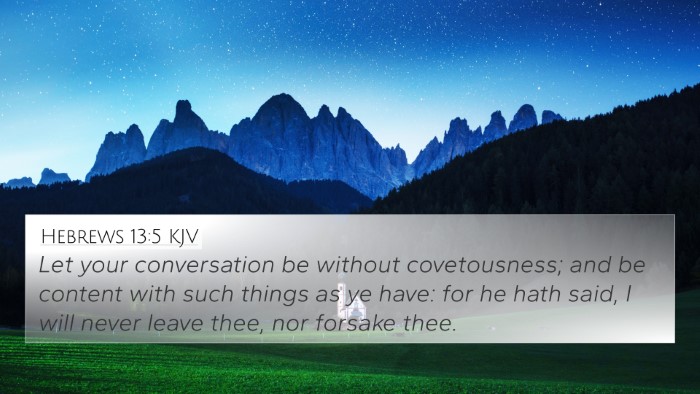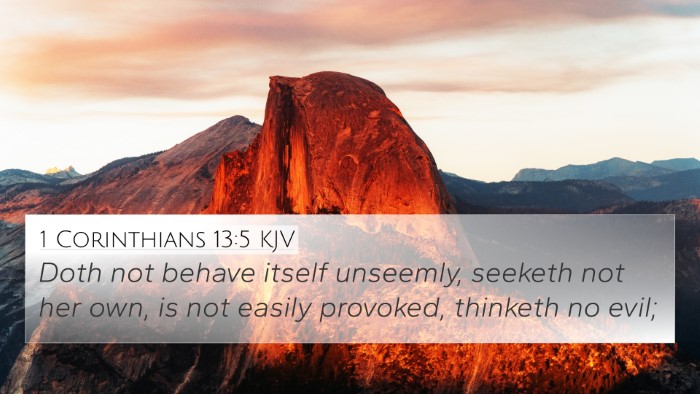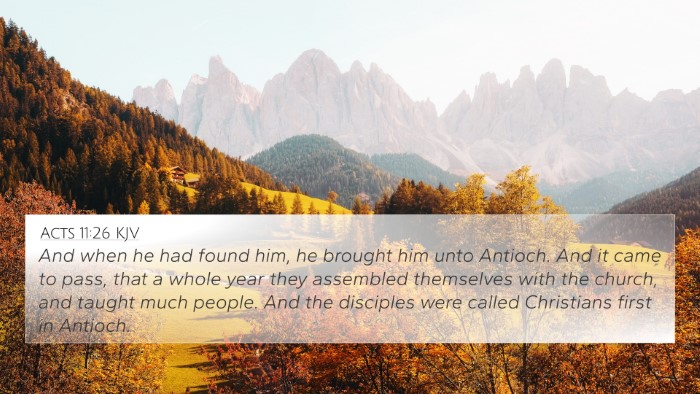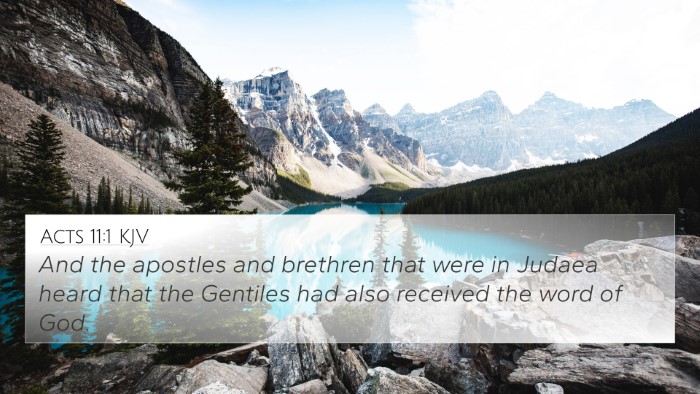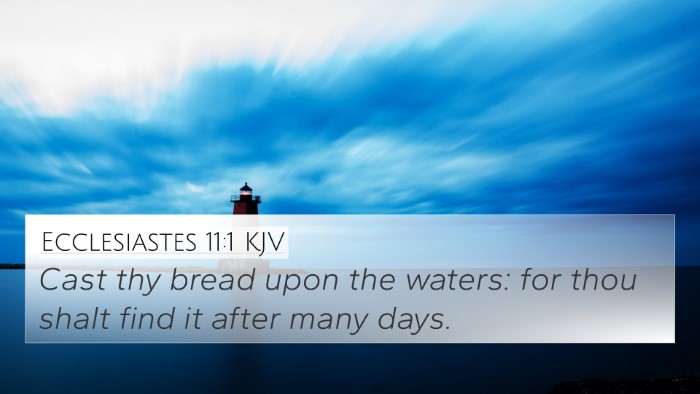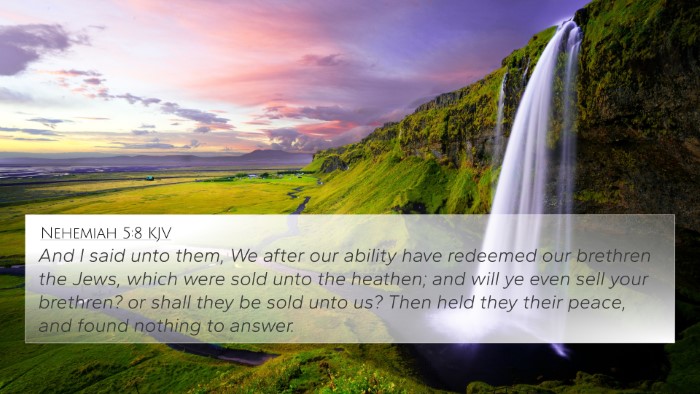Understanding Acts 11:29
Acts 11:29 reads, "Then the disciples, every man according to his ability, determined to send relief unto the brethren which dwelt in Judaea." This verse provides insight into the early Christian community's collective response to a prophetic warning about a coming famine. It highlights themes of generosity, communal support, and the importance of responding to needs within the body of Christ. Below is a compilation of insights from renowned Bible commentaries.
Summary of Key Insights
- Matthew Henry: He emphasizes the spirit of generosity among the early believers. Henry notes that each disciple gave according to his ability, suggesting that financial stewardship is a commendable virtue. This act of charity illustrates the unity among the Christians, demonstrating how they took to heart the prophecy about impending need.
- Albert Barnes: Barnes points out that this verse indicates a well-organized response to a dire situation. He focuses on the collaboration among the disciples, signifying that they understood their collective responsibility to provide relief. Barnes highlights that this act of charity fosters a strong bond within the Christian community.
- Adam Clarke: Clarke elaborates on the geographical significance of the relief sent to Judea, where the church faced challenges. He interprets this as a foundational aspect of early Christian ethics, where believers looked out for one another. Clarke also discusses the prophetic nature of the famine, suggesting that foresight can inspire proactive charitable actions.
Thematic Connections to Other Scripture
Acts 11:29 resonates with several other Bible verses, serving as a reminder of the interconnectedness of biblical teachings. Here are some cross-referenced themes and verses:
- Galatians 6:2: "Bear ye one another's burdens, and so fulfill the law of Christ." This verse echoes the sentiment of mutual support among believers.
- 2 Corinthians 8:14: "But by an equality, that now at this time your abundance may be a supply for their want, that their abundance also may be a supply for your want." Here, Paul discusses the idea of reciprocity in giving, much like in Acts 11:29.
- James 2:15-16: "If a brother or sister be naked, and destitute of daily food, and one of you say unto them, Depart in peace, be ye warmed and filled; notwithstanding ye give them not those things which are needful to the body; what doth it profit?" This verse emphasizes the practical aspect of faith through actionable support.
- Romans 12:13: "Distributing to the necessity of saints; given to hospitality." This reflects the early church's intent to support one another in times of need.
- Acts 2:45: "And sold their possessions and goods, and parted them to all men, as every man had need." This earlier instance in Acts shows a precedent for communal sharing and support.
- Luke 3:11: "He answered and said unto them, He that hath two coats, let him impart to him that hath none; and he that hath meat, let him do likewise." This aligns with the charitable motivations of the early church.
- 1 John 3:17: "But whoso hath this world's good, and seeth his brother have need, and shutteth up his bowels of compassion from him, how dwelleth the love of God in him?" This underscores the moral imperative of helping others when one has the means.
Interpretation and Application
The essence of Acts 11:29 can inspire modern believers to consider how they respond to community needs. Each person's contribution, as highlighted in this verse, is important. It demonstrates that all are called to act according to their capacity, reinforcing the collective responsibility to care for one another. This verse can serve as a foundational call to action for contemporary churches, promoting unity and proactive care in times of need.
Tools for Cross-Referencing
For those seeking to delve deeper into themes of mutual aid and responsibility among believers, consider using these tools:
- Bible Concordance: A valuable resource for locating verses by keywords and themes.
- Bible Cross-Reference Guide: Guides that provide insights into verse connections can enhance understanding.
- Cross-reference Bible Study: Methods that help identify relationships between different passages.
- Bible Reference Resources: Comprehensive materials that help illustrate the connectedness of scriptures.
- Bible Chain References: Look for chains of related verses that elucidate a particular theme.
Conclusion
Acts 11:29 serves as a powerful reminder of the early church's spirit of generosity and responsibility. By analyzing this verse through various commentaries and supporting scripture, believers gain a richer understanding of their role in the body of Christ. Such interconnectedness demonstrates the timeless relevance of biblical teachings on unity and support, applicable to both ancient and modern contexts.
